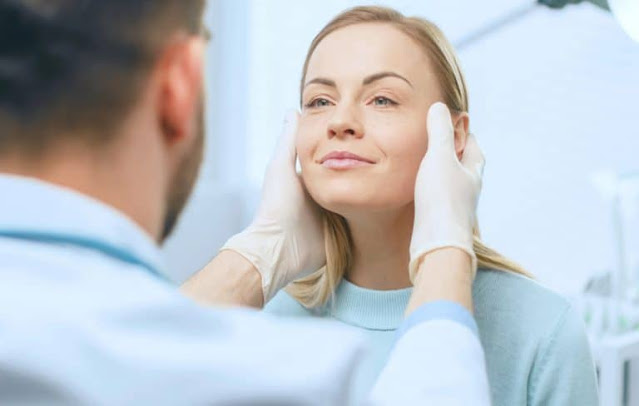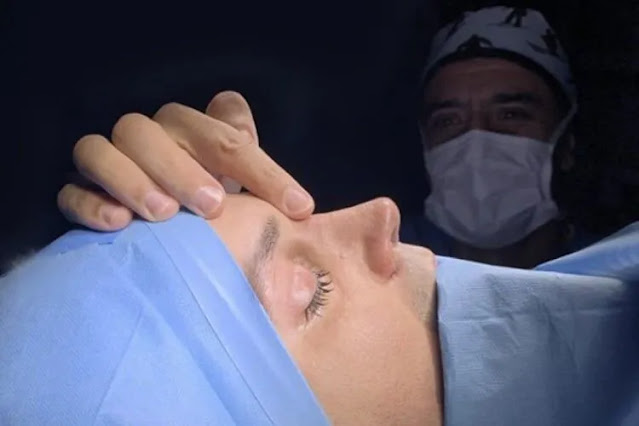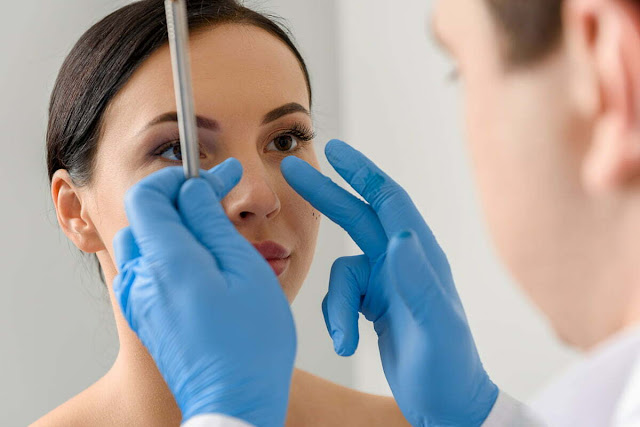Recovery Tips for Rhinoplasty Surgery
Preparing For Rhinoplasty Surgery
Preparing for rhinoplasty surgery is an important part of ensuring a successful and smooth procedure. Rhinoplasty, also known as a nose job, is a surgical procedure that is performed to enhance the appearance of the nose or improve its functionality. It is essential to have a clear understanding of what to expect before, during, and after the surgery to ensure a positive experience and optimal results.
One of the first steps in preparing for rhinoplasty surgery is to schedule a consultation with a qualified and experienced plastic surgeon. During this consultation, the surgeon will evaluate your nasal structure, discuss your goals and expectations, and determine whether you are a good candidate for the procedure. It is crucial to choose a surgeon who specializes in rhinoplasty and has a proven track record of successful surgeries.
Once you have chosen a surgeon, they will provide you with specific instructions to follow in the days leading up to the surgery. This may include guidelines on medications to avoid, fasting before the procedure, and arranging for transportation to and from the surgical facility. It is important to carefully follow these instructions to ensure your safety and optimize the outcome of the surgery.
- Avoiding certain medications: Before your surgery, your surgeon will likely provide you with a list of medications to avoid. This may include blood-thinning medications, such as aspirin or ibuprofen, as they can increase the risk of bleeding during and after the surgery. It is essential to inform your surgeon about any medications or supplements you are currently taking to ensure their safety in combination with the surgery.
- Fasting before surgery: In most cases, you will be required to fast for a certain period before the surgery. This is to prevent complications related to anesthesia during the procedure. Your surgeon will provide you with specific instructions regarding when to stop eating and drinking before the surgery.
- Arranging transportation: Rhinoplasty is typically performed on an outpatient basis, meaning you will be able to go home the same day. However, due to the effects of anesthesia and the initial stages of recovery, it is essential to arrange for someone to drive you to and from the surgical facility. You may also need assistance at home during the first few days of recovery.
By following these pre-surgery preparations, you can ensure that you are fully prepared for your rhinoplasty surgery. These steps will help minimize risks, optimize results, and ensure a smooth recovery process. Remember to communicate openly with your surgeon and ask any questions or concerns you may have before the procedure. With proper preparation and a skilled surgeon, you are on your way to achieving the nose you have always desired.
Immediate Post-Surgery Care
After undergoing rhinoplasty surgery, immediate post-surgery care is crucial to ensure proper healing and minimize any potential complications. The first few hours and days after the surgery are critical, and following the instructions provided by your surgeon is essential for a successful recovery.
Firstly, it is important to keep your head elevated for the first 24 to 48 hours after surgery. This helps reduce swelling and promotes healing. You can use extra pillows or a comfortable recliner to elevate your head while sleeping or resting.
Secondly, it is normal to experience some bleeding and drainage immediately after rhinoplasty. Your surgeon will provide you with gauze pads or a drip pad to catch any drainage. It is necessary to change these pads as instructed to maintain cleanliness and prevent infection.
- Make sure to follow a strict medication schedule as prescribed by your surgeon. Pain medication and antibiotics may be prescribed to manage pain and prevent infection.
- Avoid blowing your nose or any activities that put pressure or strain on the nose. This can disrupt the healing process and potentially damage the surgical outcome.
- Use cold compresses or ice packs to reduce swelling and alleviate discomfort. Be sure to wrap the ice pack in a cloth or towel before applying it to your nose to protect your skin.
Lastly, it is crucial to attend all follow-up appointments with your surgeon. These appointments allow your surgeon to monitor your healing progress and address any concerns or complications that may arise. Be sure to communicate any unusual symptoms or changes you may experience during the recovery period.
| Immediate Post-Surgery Care Tips: |
|---|
| Keep your head elevated |
| Change gauze pads regularly |
| Follow medication schedule |
| Avoid blowing your nose |
| Use cold compresses or ice packs |
| Attend follow-up appointments |
By carefully following these immediate post-surgery care instructions, you can help ensure a smooth and successful recovery after rhinoplasty. Remember to be patient with the healing process, as it may take several weeks or even months to achieve the final results. If you have any concerns or questions during your recovery, do not hesitate to reach out to your surgeon for guidance and support.
Managing Pain And Discomfort
After undergoing rhinoplasty surgery, it is common to experience some degree of pain and discomfort. However, there are several strategies that can help you effectively manage these symptoms and promote a smoother recovery process. One of the first steps to take is to closely follow your surgeon's post-operative instructions. This may include taking prescribed pain medication as directed and avoiding certain activities that could worsen pain or lead to complications.
Additionally, applying cold compresses to the surgical area can help reduce swelling and alleviate discomfort. Cold packs can be used for short intervals, typically around 20 minutes at a time, several times a day. It is important to wrap the cold pack in a towel or cloth to prevent direct skin contact, which could cause frostbite or skin damage.
In some cases, your surgeon may recommend certain over-the-counter pain relievers, such as acetaminophen or ibuprofen. However, it is essential to consult with your surgeon before taking any medication, as they will be able to advise you on the appropriate dosage and any potential contraindications.
Recovery Tips: |
|---|
| 1. Take prescribed pain medication as directed |
| 2. Avoid activities that could worsen pain or complications |
| 3. Use cold compresses for short intervals several times a day |
| 4. Wrap the cold pack in a towel or cloth |
| 5. Consult with your surgeon before taking any over-the-counter pain relievers |
Dealing With Bruising And Swelling
Bruising and swelling are common side effects following any type of surgery, including rhinoplasty. While these symptoms can be uncomfortable and may cause concern, it is important to remember that they are a normal part of the healing process. Understanding how to effectively deal with bruising and swelling can help to minimize their impact and promote a smoother recovery.
One of the most effective ways to manage bruising and swelling after rhinoplasty is to apply cold compresses to the affected area. This can help to reduce inflammation and minimize the appearance of bruises. It is recommended to use a clean cloth or ice pack wrapped in a thin towel and apply it to the bruised and swollen areas for about 15 minutes at a time, several times a day, for the first few days after surgery.
In addition to cold compresses, keeping your head elevated can also help to reduce swelling. It is advised to sleep with your head elevated on two or three pillows for the first few nights following surgery. This helps to promote proper blood circulation and prevent excess fluid accumulation in the surgical area.
- Another important factor to consider in dealing with bruising and swelling is to avoid any medications or supplements that may increase bleeding or prolong swelling, such as aspirin, ibuprofen, and certain herbal remedies. It is crucial to consult with your surgeon before taking any medication or supplement after surgery.
- Eating a healthy and balanced diet can also play a significant role in managing bruising and swelling. Consuming foods rich in vitamins and minerals, particularly vitamin C and zinc, can help to promote faster healing and reduce inflammation. Including plenty of fruits, vegetables, lean proteins, and whole grains in your diet is highly recommended.
- Lastly, following the post-operative care instructions provided by your surgeon is essential for proper healing and minimizing bruising and swelling. This may include avoiding strenuous activities, keeping the incision area clean and protected, and attending follow-up appointments as scheduled. Adhering to these instructions will aid in a smoother recovery process.
| Dealing With Bruising And Swelling: |
|---|
| - Apply cold compresses to reduce inflammation and minimize bruising. |
| - Keep your head elevated to promote proper blood circulation and prevent excessive fluid accumulation. |
| - Avoid medications and supplements that may increase bleeding or swelling. |
| - Consume a healthy and balanced diet rich in vitamins and minerals. |
| - Follow post-operative care instructions provided by your surgeon. |
Protecting And Cleaning The Incision Area
After undergoing any surgical procedure, it is crucial to take proper care of the incision area to ensure optimal healing and prevent any potential complications. Protecting and cleaning the incision area is an essential part of the recovery process, and it requires attention to detail and a strict adherence to hygienic practices. Here are some important steps to follow to effectively protect and clean your incision area:
1. Keep the incision dry:
One of the most critical aspects of protecting the incision area is to keep it dry. Moisture can hinder the healing process and increase the risk of infection. Therefore, it is crucial to avoid exposing the incision area to water, particularly during the initial stages of recovery. Be cautious while bathing or showering, and cover the incision area with a waterproof dressing or plastic wrap to prevent it from getting wet.
2. Gently clean the incision:
Regularly cleaning the incision area is essential to remove any accumulated dirt, bacteria, or other contaminants. To clean the incision, use a mild antibacterial soap and warm water. Avoid using harsh scrubbing motions or rough materials that could irritate the incision site. Gently pat the area dry with a clean, soft towel after cleaning.
3. Apply prescribed ointments or creams:
Depending on your surgeon's recommendations, applying prescribed ointments or creams to the incision area may promote healing and prevent infection. These topical medications often contain ingredients like antibiotics or antiseptics that can help keep the incision area clean and free of bacteria. Follow your surgeon's instructions regarding the frequency and method of application.
4. Avoid touching or scratching the incision:
It is crucial to resist the urge to touch or scratch the incision area, as this can introduce bacteria and impede the healing process. To prevent unintentional contact, keep your hands clean and avoid wearing clothing that may rub against the incision site. If necessary, you can cover the area with a sterile bandage or dressing to provide an additional barrier of protection.
| Benefits of Protecting and Cleaning the Incision Area | Precautions to Take |
|---|---|
|
|
Maintaining A Healthy Diet
Maintaining a healthy diet is crucial for supporting the healing process after any surgical procedure, including rhinoplasty. A well-balanced diet provides the necessary nutrients and vitamins that are essential for the body to recover efficiently. Proper nutrition not only aids in tissue repair and wound healing but also helps to reduce inflammation and boost the immune system. Here are some important dietary considerations to keep in mind during your rhinoplasty recovery:
1. Stay Hydrated:
Drinking enough water is essential for overall health and post-surgery recovery. Adequate hydration helps to maintain proper blood circulation and prevents complications like constipation, which can be a common side effect of pain medication. Aim for at least eight glasses of water per day to stay hydrated.
2. Consume a Balanced Diet:
Focus on consuming a variety of fruits, vegetables, whole grains, lean proteins, and healthy fats. This will provide you with the necessary vitamins, minerals, and antioxidants needed for tissue repair. Include foods rich in vitamin C, vitamin A, zinc, and omega-3 fatty acids, as these are particularly beneficial for healing.
3. Avoid Processed Foods and Sugar:
Processed foods and those high in sugar can increase inflammation and delay the healing process. Opt for fresh, whole foods instead. Avoid sugary beverages, snacks, and desserts, as these can also negatively impact your recovery.
Include the following foods in your diet:
| Fruits: | Oranges, berries, kiwi, pineapple |
| Vegetables: | Broccoli, spinach, carrots, bell peppers |
| Proteins: | Chicken, fish, tofu, beans |
| Whole Grains: | Quinoa, brown rice, whole-wheat bread |
| Healthy Fats: | Avocado, olive oil, nuts, seeds |
By following these dietary guidelines, you can support the healing process, reduce inflammation, and promote optimal recovery after rhinoplasty surgery. Remember to consult with your surgeon or a registered dietitian for personalized recommendations based on your specific needs and medical history.
Avoiding Activities That Can Disrupt Healing
After undergoing a rhinoplasty surgery, it is crucial to avoid certain activities that can disrupt the healing process. Failing to do so can result in complications and prolong the recovery period. It is important to follow the post-operative instructions provided by your surgeon to ensure optimal healing. Here are some activities to avoid during the healing process:
Avoid intense physical activities: It is necessary to refrain from engaging in strenuous activities such as heavy lifting, running, or any form of exercise that may increase your heart rate and blood pressure. These activities can lead to bleeding, swelling, and prolonged healing. It is recommended to take ample rest during the initial recovery phase.
Do not blow your nose forcefully: Blowing your nose forcefully can put excessive pressure on the healing incisions, disrupt the formation of new blood vessels, and result in bleeding. To avoid this, it is recommended to gently sniff the mucus back into the throat or use a saline nasal spray to help keep the nasal passages clear.
Avoid exposure to smoke and pollutants: Smoke, pollutants, and irritants in the environment can hamper the healing process and increase the risk of complications. It is important to avoid environments where you may be exposed to secondhand smoke, chemical fumes, dust, or other airborne particles. If necessary, wearing a face mask can provide additional protection.
| Activities to Avoid: | Duration of Avoidance: |
|---|---|
| Lifting heavy objects | At least 2-3 weeks |
| Vigorous exercise and running | At least 4-6 weeks |
| Blowing nose forcefully | At least 1-2 weeks |
| Exposure to smoke and pollutants | Throughout the entire healing process |
It is essential to listen to your body and consult with your surgeon if you have any concerns or questions regarding specific activities to avoid. By avoiding these activities, you can help promote a smooth and uneventful healing process, allowing you to achieve the desired results of your rhinoplasty surgery.



